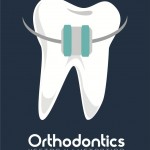
There is increasing interest in reducing the duration of orthodontic treatment and a number of approaches for achieving this have been studies. Corticotomy for accelerating orthodontic tooth movement was first described just over 50 years ago and a number of studies have been published in recent years.
The aim of this review was to assess the effectiveness and safety of corticotomy-facilitated orthodontics.
Methods
Searches were conducted in the Cochrane Central Register of Controlled Trials (CENTRAL), Medline, Embase, SCOPUS and Web of Science Core Collection databases. Randomised controlled trials, prospective and retrospective controlled clinical trials (CCTs) involving corticotomy-facilitated orthodontics in humans were considered. Two reviewers independently screened studies abstracted data and assessed risk of bias using the Cochrane risk of bias tool. A narrative summary of the findings was presented
Results
- 14 studies (6 RCTs; 8 CCTs) were included involving a total of 175 corticotomy patients and 170 control patients.
- All 14 studies were at high or unclear risk of bias.
- 11 studies compared rate or duration of tooth movement in corticotomy and control groups showing statistically meaningful increase in rate of tooth movement
- 9 studies examined periodontal parameters and overall there did not appear to be any important adverse outcomes
- 4 studies examined the effect of corticotomy on root resorption, which was similar to controls.
- 3 studies briefly discussed tooth vitality.
Conclusions
The authors concluded
Corticotomy procedures can produce statistically and clinically meaningful temporary increases in the rate of orthodontic tooth movement with minimal side effects. Additional high-quality randomised clinical trials are needed to allow more definitive conclusions.
Comments
While 14 studies were included in this review they only include a small number of patients with only 175 patients who underwent corticotomy. The studies were also considered to be of low quality with a majority also being of short duration. Consequently the findings of the review should be interpreted with caution. Only 3 of the studies included in this review were included by the 2015 Cochrane review of surgical adjunctive procedures for accelerating orthodontic treatment (Dental Elf – 6th Jul 2015). The Cochrane review, which had broader question, including procedures other than corticotomy concluded: –
This review found that there is limited research concerning the effectiveness of surgical interventions to accelerate orthodontic treatment, with no studies directly assessing our prespecified primary outcome. The available evidence is of low quality, which indicates that further research is likely to change the estimate of the effect. Based on measured outcomes in the short-term, these procedures do appear to show promise as a means of accelerating tooth movement. It is therefore possible that these procedures may prove useful; however, further prospective research comprising assessment of the entirety of treatment with longer follow-up is required to confirm any possible benefit.
Links
Primary paper
Patterson BM, Dalci O, Darendeliler MA, Papadopoulou AK. Corticotomies and Orthodontic Tooth Movement: A Systematic Review. J Oral Maxillofac Surg. 2016 Mar;74(3):453-73. doi: 10.1016/j.joms.2015.10.011. Epub 2015 Oct 24. Review. PubMed PMID: 26608454.
Other references
Dental Elf – 15h Mar 2016 -Orthodontic treatment with fixed appliances – how long does it take?
Kevin O’Brien’s Blog – Can we speed up orthodontic treatment?

Corticotomy for facilitating orthodontic treatment ? https://t.co/Vl1m5EXcPn
Corticotomy for facilitating orthodontic treatment – limited research available https://t.co/hNRIXNwetT vía @sharethis
Corticotomy for facilitating orthodontic treatment – limited research available https://t.co/Vl1m5EXcPn
Limited research available on corticotomy facilitated orthodontic treatment https://t.co/Vl1m5EXcPn
Little high quality evidence for corticotomy facilitated orthodontic treatment https://t.co/Vl1m5EXcPn
Corticotomy facilitated orthodontic treatment-little high quality evidence https://t.co/Vl1m5EXcPn
Don’t miss -Corticotomy for facilitating orthodontic treatment – limited research available https://t.co/Vl1m5EXcPn